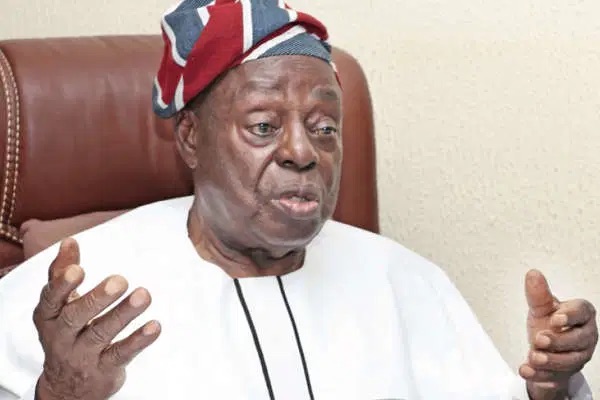Legal icon and founder of Afe Babalola University, Ado-Ekiti (ABUAD), Aare Afe Babalola, has voiced deep concern over Nigeria’s escalating debt profile, warning that the nation’s economic image is rapidly deteriorating and discouraging foreign investment.
Speaking over the weekend at the 2025 International Leadership Conference on Leadership, Governance, Sustainable Change, and Wealth Creation (2.0), held in Ado-Ekiti, Babalola lamented that Nigeria’s financial situation has reached a worrisome stage.
The event, jointly organised by ABUAD, Trinity Western University (TWU), Vancouver, Canada, and the African Centre for Leadership, Strategy, and Development (CentreLSD), had as its theme: “Shaping Transformational Leaders for a Changing World: Tackling Insecurity, Governance, and Development.”
Babalola described the theme as “most appropriate at this time of our development,” stressing that Nigeria’s mounting debt has begun to erode both local and international investor confidence.
According to him, Nigeria’s total public debt now stands at ₦152.4 trillion (approximately $99.7 billion) — a figure he said paints the country as a “big debtor nation.”
“Records show that Nigeria is now a big debtor country, with total public debt at ₦152.4 trillion, or $99.7 billion. Consequently, most foreign companies are reluctant to invest in this debtor nation,” he said.
“As I speak to you now, I know that our banks are complaining that the Central Bank is not honouring promissory notes issued by government due to the Federal Government’s inability to pay because of its mounting debt.”
He urged the government to embark on urgent reforms, adopt responsible fiscal management, and implement policies that can restore economic stability, investor confidence, and sustainable national development.
Babalola also reminded the audience of the government’s constitutional duty under Section 14 of the Nigerian Constitution, which emphasizes democracy, social justice, and the people’s welfare as the primary purpose of governance.
“The main function of a government is contained in Section 14 of the Constitution. It states that the Federal Republic of Nigeria shall be a State based on the principles of democracy and social justice… The security and welfare of the people shall be the primary purpose of government,” he stated.
Delivering a keynote lecture titled “Transformational Leadership in an Insecure and Disruptive Era: Building Ethical, Resilient and Impactful Leaders for Africa,” Dr. Otive Igbuzor, founding Executive Director of CentreLSD, underscored the need for transformational leadership to tackle Nigeria’s chronic challenges — including corruption, unemployment, gender inequality, and environmental degradation.
He argued that Africa needs a new generation of visionary leaders who can challenge outdated systems, reward merit over mediocrity, and foster innovation.
“Transformational leadership will enable governments to reward merit, integrity, and innovation, rather than mediocrity and patronage,” Igbuzor noted.
He further advocated for ethical leadership, institutional integrity, inclusive governance, and continental collaboration, urging the federal government to institutionalise leadership education across schools and universities. According to him, leadership formation should become as fundamental as literacy in Nigeria’s educational framework.
In her address, Professor Smaranda Olarinde, Vice-Chancellor of ABUAD, described the conference as timely and strategic. She stressed the importance of international, regional, and public-private partnerships in addressing Nigeria’s pressing issues such as insecurity, hunger, poverty, infrastructural decay, and economic instability.
The 2025 International Leadership Conference served as a powerful platform for thought leaders to examine Nigeria’s economic and governance challenges. With calls for fiscal responsibility, ethical leadership, and innovative reforms, the gathering echoed a common message — Nigeria must cultivate transformational leaders to drive sustainable development and restore global confidence.





